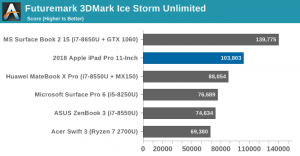D
Deleted member 243478
Guest
That sounds kind of, well, idiotic to me. If you think that Windows, which runs the most desktops in the world, that underlies the second largest cloud is "an utter piece of unreliable shit," that implies you really don't know what you are talking about. So you can understand where the "mindless" bit might come from.
Also IT supporting Macs isn't as simple as IT people just not wanting to do so. When you want to support something in an enterprise environment you have to consider a whole lot of things. Some are things like "How will we tie this system in to our central authentication system?" or "How can we quickly deploy software?" These are doable on a Mac of course, but often require investment in additional software. Apple themselves uses JAMF, for example, which is not free. So the institution has to decide to put up the cash to buy the software, hardware, etc to make something supportable. Likewise they either need to hire the staff with the proper training, or train the staff in what they need to know. It is not incumbent on the individual to go out on their own time and become a Mac expert to satisfy the users that won't use what is officially recommended and supported. It is up to the institution to change the rules, and to then make sure staff gets the training/hiring needed to support it.
You pretty much answered you own statement about reliability when you need many staff to support a windows environment and Apple users are forced to support themselves and survive just fine.
Windows 10 is garbage, I have lost count of how many computers have had to fix for failed updates and bricked them. The UI is an utter mess and completely unintuitive, Micrsofts version of simplifying the user experience is to add redundant interfaces, add more steps and slap some lipstick on it. Windows still can’t even do display scaling correctly.
Meanwhile I have only had one Mac‘s OS fail and the end user was able to run internet recovery and reinstall the OS knowing nothing about computers and following Apples recovery guide.
![[H]ard|Forum](/styles/hardforum/xenforo/logo_dark.png)
